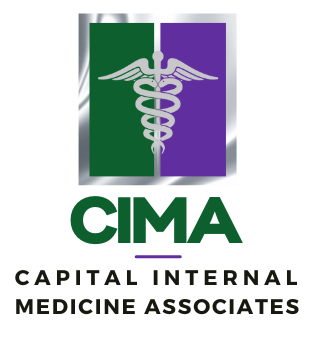

832.886.4774 Sugar Land
979.282.6151 Wharton
346.309.4955 Aesthetics
Trust Capital Internal Medicine Associates for all your primary care vaccinations and immunizations.
Schedule an appointment today at our Wharton or Sugar Land location and experience the exceptional care that
sets us apart. We're your partner on your journey of better health.
Although most adults know they are recommended to receive influenza vaccine each year, they may not be aware of other vaccines that might be recommended for them to prevent tetanus, diphtheria, pertussis (whooping cough), pneumococcal disease, shingles, hepatitis A and B, meningococcal disease, measles, mumps, rubella, and human papillomavirus.

Cholera:
Cholera is a bacterial infection found in food or water sources
contaminated with feces. Over 600 million people throughout the
globe are at risk of contracting cholera. Cholera is an acute diarrheal illness caused by infection of the intestine with Vibrio cholerae bacteria.
People can get sick when they swallow food or water contaminated with
cholera bacteria. The infection is often mild or without symptoms, but
can sometimes be severe and life-threatening.
Diphtheria:
Diphtheria is an acute, highly contagious bacterial disease
causing inflammation of the mucous membranes, formation of a false
membrane in the throat that hinders breathing and swallowing, and
potentially fatal heart and nerve damage by a bacterial toxin in the
blood. It is now rare in developed countries because of immunization.
Encephalitis:
Encephalitis is an uncommon but serious condition in which the brain becomes inflamed (swollen).
It can be life threatening and requires urgent treatment in hospital.
Anyone can be affected, but the very young and very old are most at
risk.
Japanese Encephalities:
An infection found in Asia and the west Pacific that can cause brain swelling. Japanese encephalitis is a virus spread by the bite of infected mosquitoes. It's more common in rural and agricultural areas. Most cases are mild. Rarely, it causes serious brain swelling with a sudden headache, high fever, and disorientation.
Treatment involves supportive care. A vaccine is available.
Hepatitis A:
A highly contagious liver infection caused by the hepatitis A virus. Hepatitis A is preventable by vaccine. It spreads from contaminated food or water, or contact with someone who is infected. Symptoms include fatigue, nausea, abdominal pain, loss of appetite, and low-grade fever. The condition clears up on its own in one or two months. Rest and adequate hydration can help.
Hepatitis B:
Hepatitis B is a vaccine-preventable liver infection caused by the hepatitis B virus (HBV).
Hepatitis B is spread when blood, semen, or other body fluids from a
person infected with the virus enters the body of someone who is not
infected.
Human Papillomavirus (HPV):
An infection that causes warts in various parts of the body, depending on the strain. Human papillomavirus (HPV) is the most common sexually transmitted infection (STI). Many
people with HPV don't develop any symptoms but can still infect others
through sexual contact. Symptoms may include warts on the genitals or
surrounding skin. There's
no cure for the virus and warts may go away on their own. Treatment
focuses on removing the warts. A vaccine that prevents the HPV strains
most likely to cause genital warts and cervical cancer is recommended
for boys and girls.
Influenza:
A common viral infection that can be deadly, especially in high-risk groups. The
flu attacks the lungs, nose, and throat. Young children, older adults,
pregnant women, and people with chronic disease or weak immune systems
are at high risk.
Symptoms include fever, chills, muscle aches, cough, congestion, runny nose, headaches, and fatigue.
The
flu is treated primarily with rest and fluid to let the body fight the
infection on its own. Over-the-counter anti-inflammatory pain relievers
may help with symptoms. An annual vaccine can help prevent the flu and
limit its complications.
It's important that adults get them too! Adults immune system naturally weaken with age - increasing their risk for certain infectious diseases.
Get informed about your personal risks. In addition to having an aging immune system, certain underlying conditions can increase risks among adults.
Because of these risks, it is important for adults to be mindful of aging in the healthest way!
Schedule an appointment
today at our Wharton or Sugar Land location and experience the exceptional care that
sets us apart. Your health is our priority!